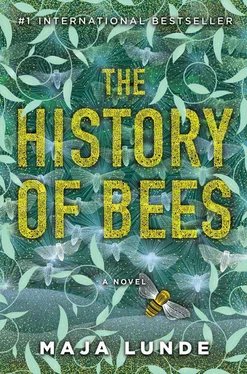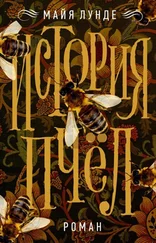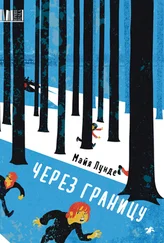I craned my neck to look at the roof. Red tiles, worn by the wind and the weather, at one time they had no doubt been shiny, glazed, like the roof of a temple. The walls were gray, and the paint was peeling off. A faint buzzing noise in the sky got my attention, there was something moving through the air. I squinted to look at it more closely, but it disappeared behind the roof.
Above me lay an impenetrable gray sky. The sun had been out when I left the hotel, but here it was foggy. As if it were already getting dark.
The trip had taken four hours. It involved three changes and was a long detour, but went through what the receptionist had called secure areas. Still, everything was so quiet and run-down that I repeatedly caught myself being suspicious of the few travelers I met, and threw anxious glances over my shoulder.
I had tried to contact this hospital several times, but the answer was the same as everywhere else. They had never heard Wei-Wen’s name, couldn’t help me. And the last times I had called them they hadn’t answered. Only an automatic message greeted me on the other end, a voice-mail system that never led anywhere.
A centerpiece of dead plants was the first thing I saw. A dim light from a lamp confirmed that the hospital still had electricity. The huge lobby was empty. A counter of dark wood loomed before me. I found an old check-in machine for family members, it had to be from the time before The Collapse. It flickered beneath my fingers, but soon went black.
Aimlessly I started walking. First to the right, but I met a locked door.
To the left I found a lift. I tried the different buttons, but nothing happened. I kept going. Endless, dark corridors lay in front of me.
I tried several doors, but they were all locked.
Finally I found one that led to a dark stairway. I walked up a flight. The door there was locked. I tried another one. It, too, was locked. It wasn’t until the third floor I found an open door. It led into a corridor, just as deserted as the others. I walked a few meters. My steps sounded like dull thuds against the stone floor.
I stopped by a window. That’s when I discovered it. In one of the hospital’s side wings there were lights on. I continued in that direction, hoping the corridor I was walking down connected the wings so I could go there directly.
Suddenly I heard a sound in front of me, of hollow metal being dragged across linoleum.
“Hello?” I said softly.
A door was open ahead of me, a double glass door.
I became abruptly aware of my heart, it was pounding hard. Something was wrong. Perhaps I should get out of there, get to the light way over there in the side wing. But I had to get past the doors. I began walking faster.
Yet another sound. Tottering steps.
Then a figure came into view in front of me. The first thing I saw was the bare feet. Unclipped toenails on wrinkled toes. She—because it had to be a woman—barely managed to make her way forward, supporting herself on a walker with a bag of intravenous medicine. It was the walker that made the sound. But the bag was empty. Her gray hair was growing in clumps, her scalp peeling off in large flakes. All she was wearing was a hospital gown. It was stained; under it I could see the outline of a diaper and it was only then that I noticed the smell.
She stared at me, as if unable to recall any words.
I backed up, wanted to get away.
She hissed, tried again, wanted to say something.
I pulled myself together, took a breath, I couldn’t abandon her.
I took a few steps towards her. She swayed a bit, looked as if she were about to collapse.
“Ll… loo… ,” she said faintly. “Look.” She swayed. I grabbed her by the elbow to support her. The stench stung in my nose; her arm was as thin as a child’s. She wanted to bring me back to the room she had come from.
I pushed at the door. It slid open silently and we went in. I tried to support her the whole time. Nausea churned inside me, the stench was like a thick mass, impenetrable. It hit me and sucked the air out of me.
A room. Along the walls there were beds, shiny hospital beds of steel rods, side by side, all made up with bedding that had once been white. I didn’t have time to count them, but there must have been more than a hundred.
There were people lying in the beds. Some of them were elderly, many quite old, a few extremely old people. Awake, whimpering, clamoring, moaning, hands waving in the air. And a few lay with their eyes shut, as if they were sleeping.
My arrival caused several of them to get out of bed. They were skinny, so dreadfully skinny and just as unkempt as the woman I’d entered with. Now they clambered onto their feet and started coming towards me.
Twenty or so old people fought against their own bodies, fought against gravity and made their way forward, some so unstable that they had to crawl. All of them repeated the same words. Help. Help me. Help us. Over and over again.
But those who were sleeping just lay there, despite the noise, despite the cries of the others. It was only then I understood that it wasn’t sleep that chained them to the beds. It was death.
I turned around then and ran.
I shouted. Screamed without words. Tried to summon somebody’s attention, but nobody answered.
I continued in the darkness. To the other wing, where there were lights.
The only sound was of my footsteps against the linoleum, my own breathing.
I rounded a corner and finally saw the rooms with the lights on. I ran towards the door. Threw it open with a bang. A woman dressed in white, a doctor or a nurse, looked at me in surprise. She was in the process of packing bedding in a box.
“Who are you?”
Only then did I notice I was crying.
I rubbed my eyes, tried to explain, but the words got all mixed up.
“Look here, sit down.” She wanted to help me down onto a chair.
“No, no. The old people… they need help.”
She looked away. Resumed folding the sheets.
I pulled at her arm.
“I have to show you. Come!”
She squirmed carefully out of my grasp. Didn’t look at me.
“We know about them,” she said calmly.
I put my hand on her again. “But they’re sick. Some of them… I think they’re dead.”
She jerked away.
“We can’t take them with us.”
“What do you mean?”
“We’re evacuating the hospital. It’s not safe here. We’re taking the patients to a hospital further south, in Fangshan. There are so few of us, we can’t manage any longer. The supplies don’t make it here, nobody wants to work here.”
“But the old people?”
“They’re dead.”
“No. I saw them. They’re alive!”
“They’ll die soon.” She met my gaze, straightened her neck, as if she wanted to harden herself.
I stood there. “No!”
She put a hand on my arm.
“Sit down.”
She went over to the sink, was going to fill a glass with water, but the faucet coughed. She gave up and walked towards the hallway.
“Wait here.”
Shortly afterwards she returned with a glass of lukewarm water.
I accepted it. The glass was something to hold on to. I clung to it.
She sat down with me.
“Are you a family member?” she asked mildly.
“Yes. No. I don’t know. I mean… Not of anybody here.”
She looked at me in astonishment.
“I’m looking for my son,” I said.
She nodded. “You’re right. He’s not here. The last patients were moved earlier today. Now all that’s left is equipment.”
“And the old people?”
She didn’t reply, just stood up abruptly.
“The old people?” I said again.
“We can’t help them.” Her voice was flat, and she took hold of the trolley without looking at me. “I must ask you to leave.”
Читать дальше









